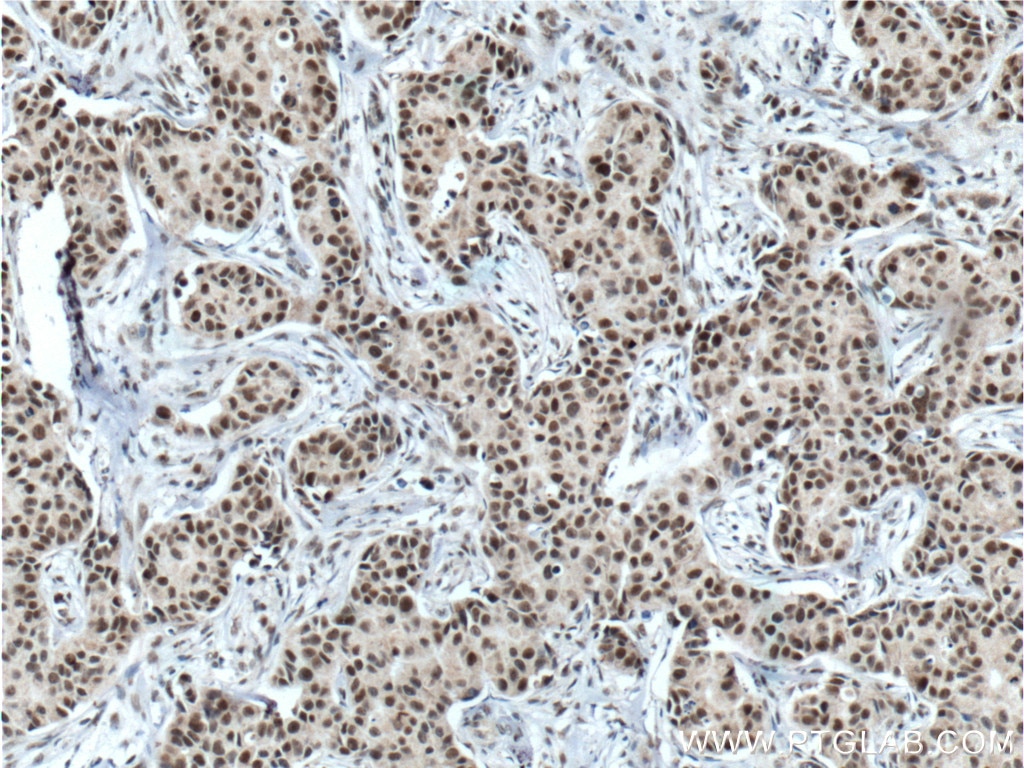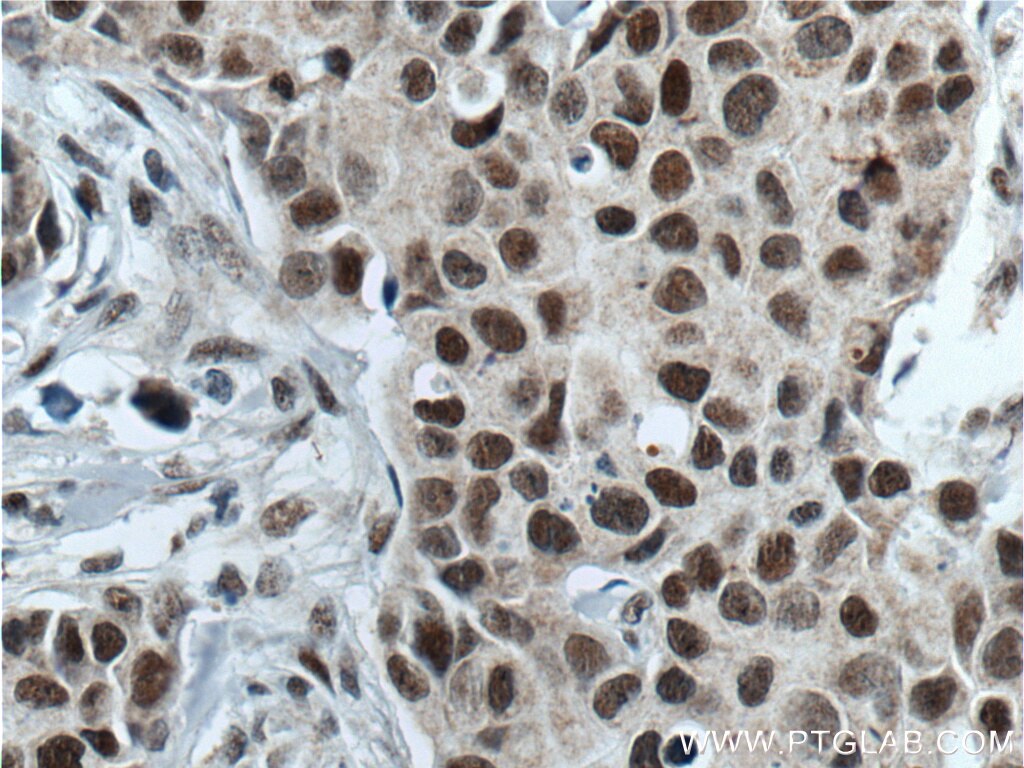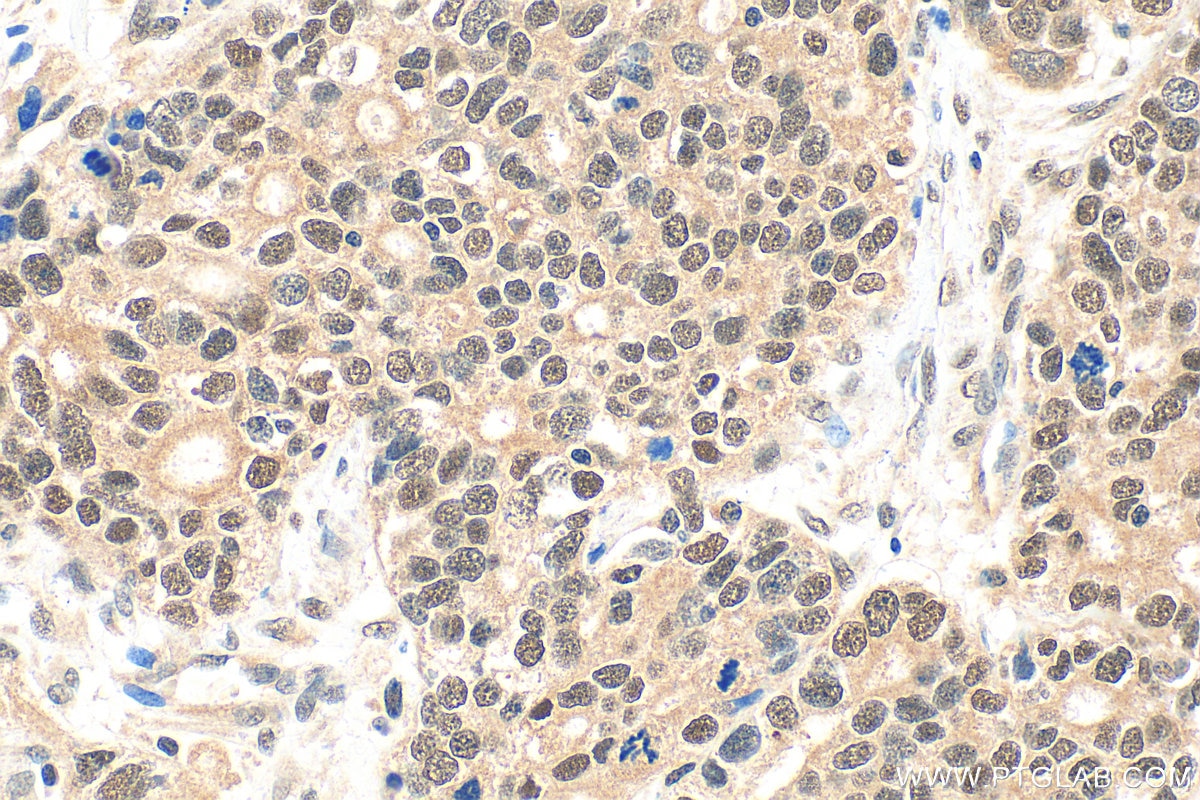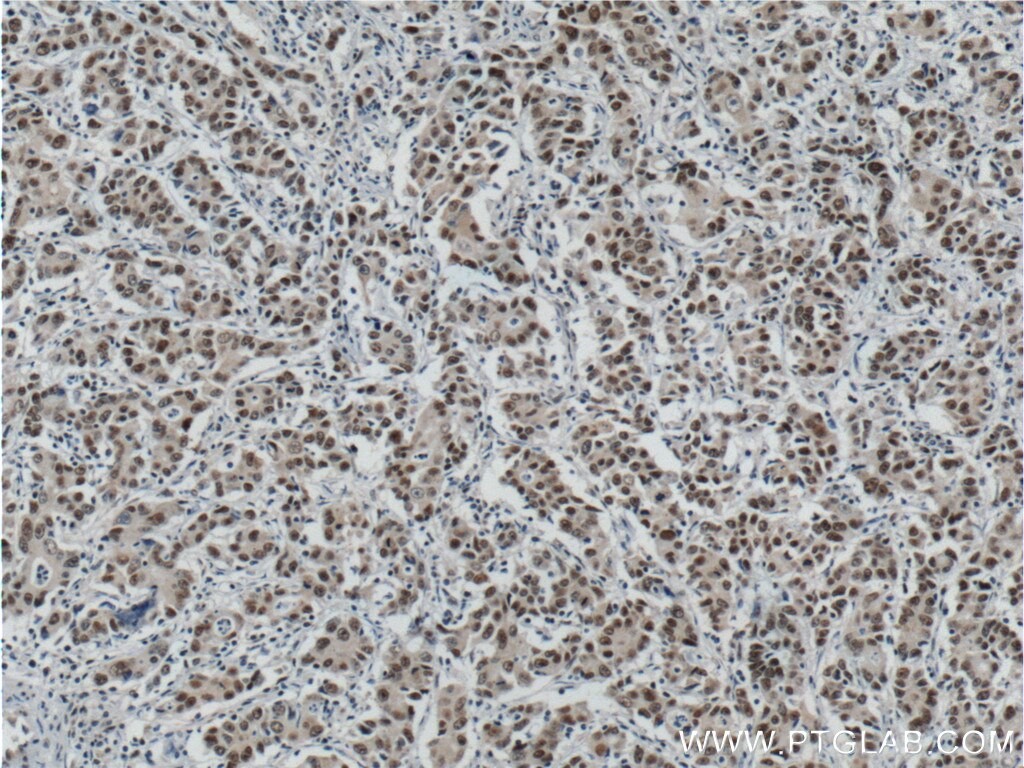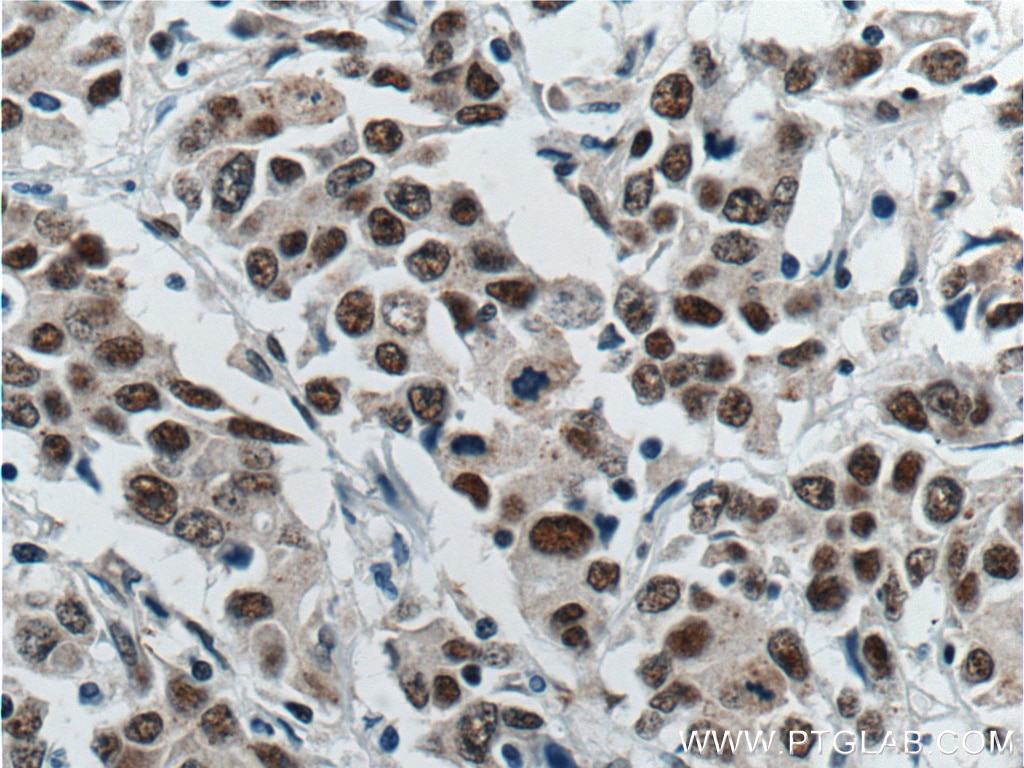- Featured Product
- KD/KO Validated
ATF7IP Polyklonaler Antikörper
ATF7IP Polyklonal Antikörper für IHC, ELISA
Wirt / Isotyp
Kaninchen / IgG
Getestete Reaktivität
human, Maus, Ratte
Anwendung
WB, IHC, IF, ELISA
Konjugation
Unkonjugiert
Kat-Nr. : 14699-1-AP
Synonyme
Geprüfte Anwendungen
| Erfolgreiche Detektion in IHC | humanes Ovarialkarzinomgewebe, humanes Mammakarzinomgewebe, humanes Magenkrebsgewebe Hinweis: Antigendemaskierung mit TE-Puffer pH 9,0 empfohlen. (*) Wahlweise kann die Antigendemaskierung auch mit Citratpuffer pH 6,0 erfolgen. |
Empfohlene Verdünnung
| Anwendung | Verdünnung |
|---|---|
| Immunhistochemie (IHC) | IHC : 1:200-1:800 |
| It is recommended that this reagent should be titrated in each testing system to obtain optimal results. | |
| Sample-dependent, check data in validation data gallery | |
Veröffentlichte Anwendungen
| KD/KO | See 1 publications below |
| WB | See 1 publications below |
| IF | See 1 publications below |
Produktinformation
14699-1-AP bindet in WB, IHC, IF, ELISA ATF7IP und zeigt Reaktivität mit human, Maus, Ratten
| Getestete Reaktivität | human, Maus, Ratte |
| In Publikationen genannte Reaktivität | human |
| Wirt / Isotyp | Kaninchen / IgG |
| Klonalität | Polyklonal |
| Typ | Antikörper |
| Immunogen | ATF7IP fusion protein Ag6341 |
| Vollständiger Name | activating transcription factor 7 interacting protein |
| Berechnetes Molekulargewicht | 137 kDa |
| GenBank-Zugangsnummer | BC063855 |
| Gene symbol | ATF7IP |
| Gene ID (NCBI) | 55729 |
| Konjugation | Unkonjugiert |
| Form | Liquid |
| Reinigungsmethode | Antigen-Affinitätsreinigung |
| Lagerungspuffer | PBS with 0.02% sodium azide and 50% glycerol |
| Lagerungsbedingungen | Bei -20°C lagern. Nach dem Versand ein Jahr lang stabil Aliquotieren ist bei -20oC Lagerung nicht notwendig. 20ul Größen enthalten 0,1% BSA. |
Hintergrundinformationen
ATF7IP (Activating Transcription Factor 7 Interacting Protein), also known as MCAF1 (MBD1-containing chromatin-associated factor 1), is a multifunctional scaffold protein that plays a pivotal role in epigenetic regulation and transcriptional control. Functionally, ATF7IP acts as an adaptor that recruits the histone methyltransferase SETDB1 to specific genomic loci, facilitating the deposition of the heterochromatin mark H3K9me3 and silencing target genes, including retrotransposons such as LINE1. This activity is essential for maintaining genomic stability by suppressing transposable element mobilization and preventing DNA damage.
Protokolle
| PRODUKTSPEZIFISCHE PROTOKOLLE | |
|---|---|
| IHC protocol for ATF7IP antibody 14699-1-AP | Protokoll herunterladenl |
| STANDARD-PROTOKOLLE | |
|---|---|
| Klicken Sie hier, um unsere Standardprotokolle anzuzeigen |
